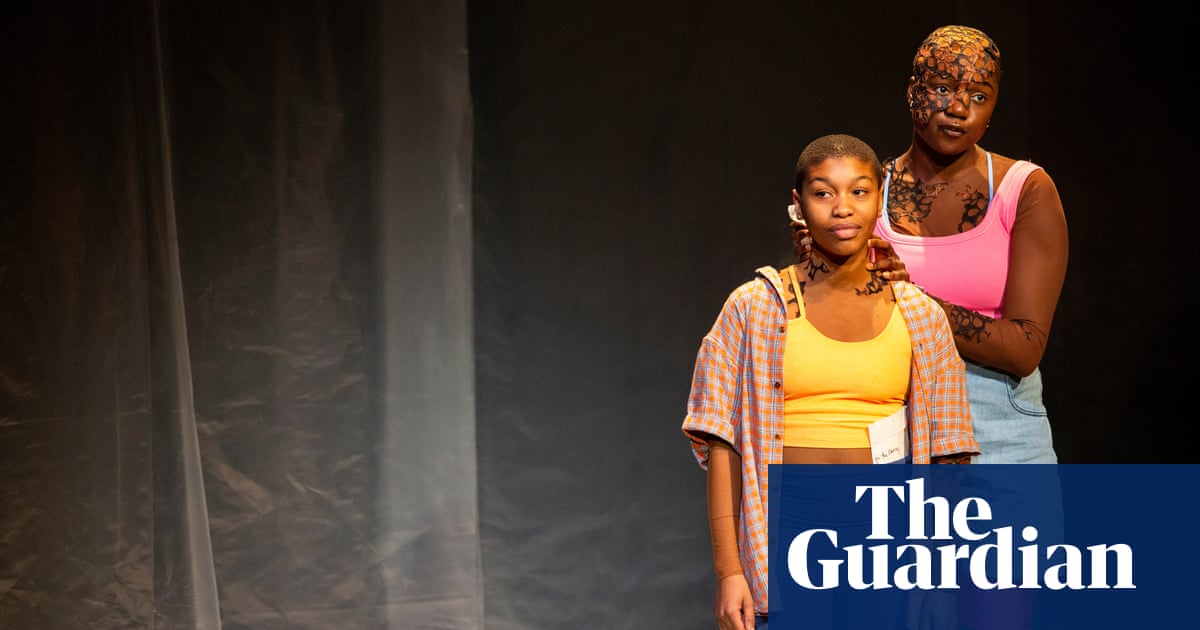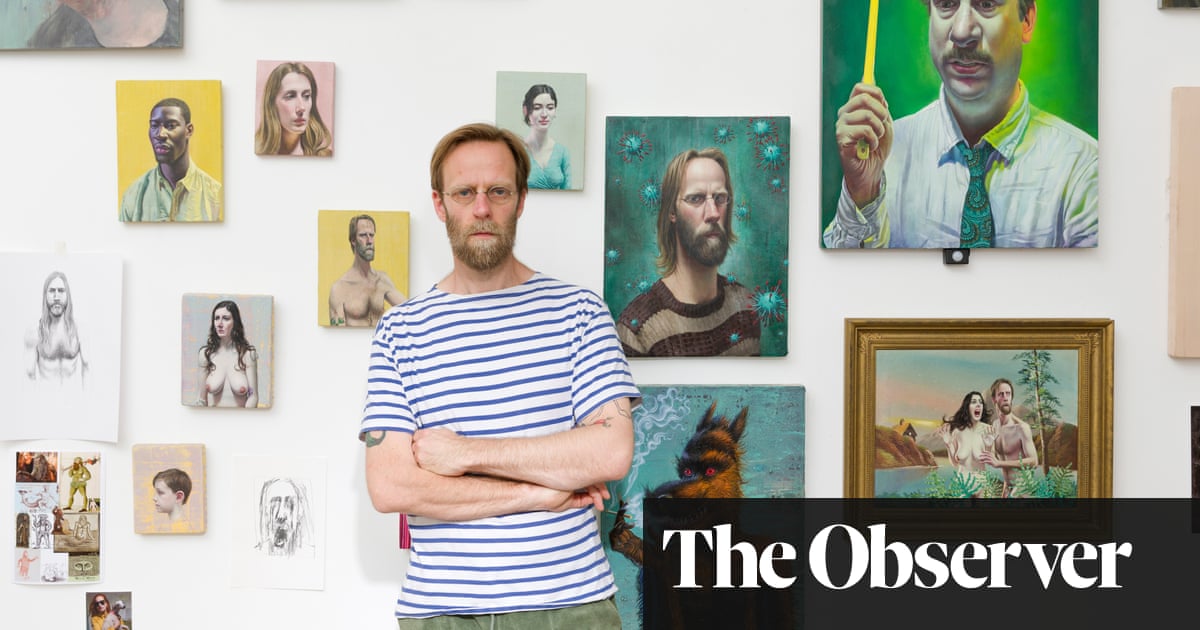
Revenge fantasy, Spaghetti western, Greek tragedy and Afropunk may not sound like the most likely bedfellows. In Is God Is, all these worlds collide as two Black twin sisters, Racine and Anaia, decide to avenge both their mother and themselves by finding and killing their violent father.
The award-winning play by US playwright Aleshea Harris, who the New York Times anointed a “snarly new master of high-octane carnage” in its review of the show’s world premiere in 2018, makes its Australian debut this month under the co-direction of Zindzi Okenyo and Shari Sebbens. The two previously worked together on Jasmine Lee-Jones’ play Seven Methods of Killing Kylie Jenner, which sold out seasons in Sydney, Brisbane and Melbourne.
Sign up for the fun stuff with our rundown of must-reads, pop culture and tips for the weekend, every Saturday morning
Okenyo and Sebbens both separately read and fell in love with Is God Is, so they jumped at the chance to bring it to life, and to work together again when approached by Melbourne Theatre Company artistic director Anne-Louise Sarks. Okenyo says it is a bold and progressive move to program this play in Australia. “After all my years of working as an actor in main-stage theatre companies, I was not expecting a show like this to be programmed,” she says. “Historically, we haven’t been able to do stories like this on main stages.”
Co-produced by Sydney theatre company, where the play will open in September, Is God Is is the MTC’s first all-Black production; its cast of eight actors includes Henrietta Enyonam Amevor (Bump) and Masego Pitso (Chewing Gum Dreams), as well as actors with US backgrounds, to bring out the cultural context of the work. “I’ve chosen to take part in a Black American work, so I want to be really specific with that,” Okenyo says. “We haven’t made any adaptations to make it more Australian – we’re doing the text as it is and as it needs.”
Is God Is takes the audience on a breakneck, bloodthirsty journey from New York to the dirty south to California. Physically scarred from their abusive past, the sisters seek justice and revenge. These characters are complex: like Medea before them, their morality exists in shades of grey, their rage both palpable and righteous.
“Is God Is celebrates and affirms their anger without care for those who don’t believe Black women and girls get to be mad,” Harris says via email. “The well-worn tropes were ripe for reinvigoration.”
“Black women are often stereotyped into just being strong or having to be survivors in a one-dimensional kind of way, whereas the twins are so multifaceted,” Okenyo says. “My aim is to make sure that every character has deep humanity.”
Harris’s writing is electric, rendered in a distinctive dialect. Even the stage directions read like slices of poetry: one calls for “a sound like a thousand matches being struck simultaneously”. She leaves a lot for the actors to interpret, with a unique use of typography – words and phrases are presented in different sizes and fonts, but there is no specific direction as to how these passages should be performed.
Cessalee Stovall, who plays the twins’ mother known as God or simply She, is enjoying the challenge, often playing against what might be the obvious interpretation. “What’s been really fun in the room is to explore – what if that typography is about how much intensity you have, and you play the opposite?” she says. “It’s really exciting that Aleshea doesn’t tell us what to do with it, and instead allows us to be really creative.”
Setting, too, is malleable. Okenyo is reluctant to reveal too much before audiences in Melbourne see it, but confirms that it is different to what has been done overseas in the US, UK or Canada, with a “really complex piece of architecture” as the central stage setting.
“There are really interesting provocations from the writer in terms of how we can make bold choices, and live outside of the parameters of what we think classical theatre might be,” she says.
Is God Is arrives at a critical time for Australian theatre. Okenyo and Sebbens’ last co-production made headlines earlier this year when the Age published a rebuttal to a request from the show’s creative team, asking publications to only send critics of colour to review it. The stipulation originated in London and was honoured by the Australian production.
Stovall runs Stage a Change, an organisation dedicated to creating more opportunities for people of colour in theatre, and wrote a widely shared open letter responding to the controversy. “I’m happy to know how many people are still thinking about it and questioning things,” she says. “I don’t think it’s a simple fix – I think it’s an ongoing, systemic level change … It’s an amazing and exciting opportunity for Australia to decide how we are going to be leaders in this conversation.”
For this production – particularly considering its heavy themes – Okenyo and Sebbens are fostering a culturally safe workplace where cast members can feel supported. “You have to be really mindful with work that is centred on trauma intertwining with performers that aren’t traditionally comfortable or allowed in these spaces,” Okenyo says.
“When you bring Black people into a space like this, you have to think really deeply about what people need … It’s important that I am Black, and they are Black, and that they see themselves in me and each other.”
Through that care and kinship, a kind of radiance emerges. “The Black experience is so centred on optimism and joy and how we overcome struggle, and so even though we’re making a work that is really dark, there’s so much joy in the room,” Okenyo says.
Five years after the play’s debut off-Broadway, Harris says, “I still love it and feel strongly that it does, on the page, exactly what I want it to do … I hope people, especially Black women, find it compelling and useful.”
Is God Is provides a much-needed shake-up for what Stovall calls MTC’s “homogenous” audience – still largely rich, older white patrons. More importantly, it opens the traditionally elitist world of theatre to a new community by telling a story that is by, for and about them.
“I hope that Black people feel really comfortable in coming to MTC and feeling like a part of this community,” Okenyo says. “I’ve always been the only Black actor in the room, and now I’m working on these plays that centre the Black experience. I’m really proud to be part of this movement.”
Is God Is runs at Southbank Theatre, MTC until 15 July; it opens at Sydney theatre company on 15 September












